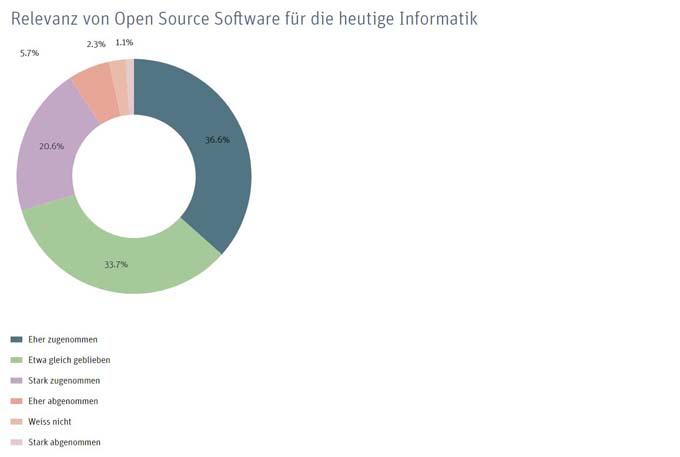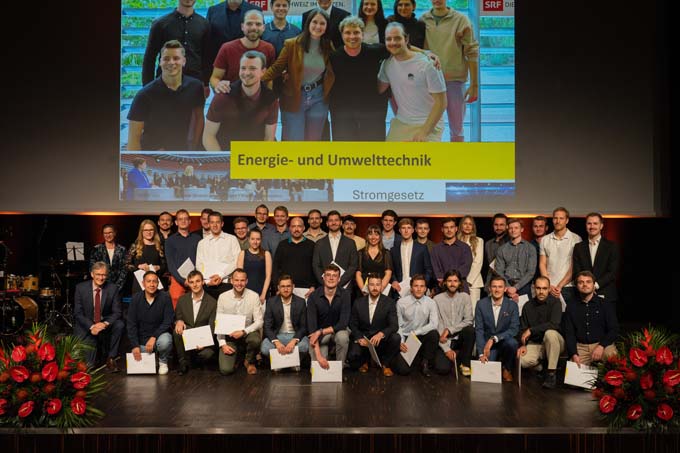Open source software is omnipresent - now also in artificial intelligence
Open source software stands for innovation, improves interoperability, strengthens data protection and increases digital sovereignty. These are the findings of the Open Source Study Switzerland 2024 by CH Open and swissICT, conducted by Bern University of Applied Sciences. The use of open source AI tools and AI models was also examined for the first time this year.

Virtually all of the companies and authorities surveyed (96.6%) use open source software in at least one of the 27 areas examined. Open source software is particularly widespread in software development and on servers (or in the cloud), somewhat less so on desktop computers (clients). Surprisingly, around 40% of respondents already use open source AI tools and AI models. This is a trend that is likely to increase, as there are already over 730,000 open source AI models for any application (speech recognition, image generation, music composition, etc.) on Hugging Face, for example.
Using existing open source software is one way of exploiting its potential; releasing open source components is another. Daniel Markwalder, Federal Council Delegate for Digital Transformation and ICT Steering (DTI), points out the current challenges facing federal IT in the foreword to the study: "We have an interest in ensuring that our software is as secure as possible, that it can be reused and that unwanted dependencies are reduced." The Federal Administration is also particularly interested in a deeper understanding of open source trends due to the new "Federal Act on the Use of Electronic Means for the Performance of Official Duties" (EMBAG), as it has had to publish all software developed in-house or externally under open source licenses since January 2024.
The release of open source software on platforms such as GitHub has long been common practice in the Swiss IT sector and in the private sector in general. More than 65% of the managers surveyed responded that they release open source software or have at least thought about it. One important player is SBB, which founded the "OpenRail Association" at the beginning of 2024 together with the German railroad company Deutsche Bahn, the French state railroad SNCF and other railroad organizations. Through this cooperation, all participating railroad companies benefit from joint software developments, as described in detail in one of the specialist articles in the open source study.
The Open Source Study Switzerland 2024 is published by the associations CH Open and swissICT. The Public Sector Transformation Institute at the Department of Economics at Bern University of Applied Sciences is responsible for conducting the study.
Source: www.ch-open.ch / www.swissict.ch / www.bfh.ch









